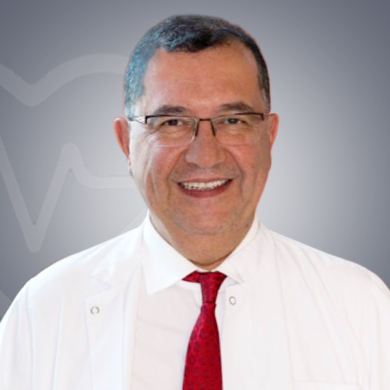
26 Years of experience
Speaks: English
Medical oncologist provides diagnosis and treatment of most types of cancers and is involved in the development of preventive measures programs. Treatment plans for cancer patients are designed considering the interdisciplinary approach. They work in close cooperation with the departments of surgery, nuclear medicine, radiology, pathology, therapy, and radiation oncology. Some of the conditions Dr. Bulent treats are:
The earlier doctors detect cancer, the sooner the treatment can start. So it is vital to know the common types of cancer and some of their warning signs. There are more than 90 types of cancer, and some of them are more common than others. This depends on your gender, age, and racial or ethnic group. If you have any of the below-listed symptoms, your primary care doctor may refer you to a medical oncologist:
Dr Bulent works from 11 am to 5 pm (Monday to Saturday). The doctor is not available on Sunday. You should confirm the doctor’s availability you visit him. This is because, sometimes, the doctor is out of the station or might be occupied in some emergencies.
The list of popular procedures that Dr Bulent perform is given below:
A medical oncologist uses chemotherapy for cancer treatment. It uses a combination of drugs to kill the cancerous cells in the body and prevents them from growing further. While chemotherapy could require a single drug, this is also given along with other drugs. Hormone therapy is used for the treatment of cancer that uses certain hormones to grow. It is effective in treating prostate and breast cancers. Hormone therapy slows or stops the rapid growth of cancer that uses hormones to grow.

Share Your Experience about Dr. Bulent

Medical Oncologist is a specialist who treats cancer through chemotherapy and other medications such as targeted therapy, and immunotherapy. He is considered the primary health care person for cancer patients. They closely work with the other medical professionals for the best results. A medical oncologist also continues with follow-ups and complete checkups of cancer patients after treatment. If a medical oncologist finds that cancer cannot be treated, they recommend hospice or palliative care for the patients. A medical oncologist is mainly involved to manage cancer.
The tests that help medical oncologists diagnose cancer are listed below:
Biopsy is the most preferred test to confirm cancer. It is the removal of a small amount of tissue from specific parts of your body followed by examination under a microscope to find the presence of cancer or any other abnormalities.
A person may be referred to a medical oncologist when the primary case doctor thinks that the person shows cancer symptoms. The medical oncologist evaluates the condition of the patient and examines to confirm cancer. You need to see a medical oncologist if you experience the symptoms listed below: